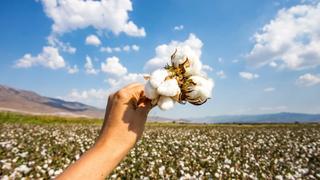Consumers who are interested in freshness, free trade, organic products and sustainability have patronised the cause of fair trade-certified/ ethical products in many parts of the world.
Products that feature the fair trade logo on them show that the producers and traders concerned have met fair trade standards designed to provide farmers a sustainable livelihood and protect the environment, by paying a fair trade premium.
In this manner, fair trade certified products help those who feed us by helping them earn the best price for their products, improve their quality of life and enjoy basic human rights.
FAIR TRADE PREMIUM
Rahul Gopinath, Regional Director for Africa, Ecom Agroindustrial Corp, which is based out of Dubai and Accra, Ghana, estimates the premium at around 10 per cent of the selling price.
Ecom is among the largest sustainable cocoa and coffee merchants in the world and claims to have pioneered some of the concepts of sustainability that are common industry practice today.
"A lot of what we do today in Africa has synergies built in for the Indian context. Especially, given the size of farms -- much like Africa, India has predominantly small farms," Gopinath observed.
The first step here is to establish clear origin, such that each cup of coffee or bar of chocolate can be traced back to the bag of cocoa or coffee and hence to the farmer/ farming community that delivered this product.
"In the olden days, the largest number of employees for a company like ours would be traders and logistics staff," Gopinath says in an e-mail interaction with BusinessLine .
MAPPING FARMER NEEDS
"Today, they are made up of field-level staff who map farms using GPS devices and proprietary software, collect data on the farm, farmer and his family and trace each bag of cocoa or coffee using bar codes or RFID tags."
This allows Ecom to pinpoint the entire supply chain and map farmer needs. It also collects information such as his proximity to school, drinking water facilities, health centre facilities or access to streams or protected forests.
The second step is to data crunch all this information to create a risk map of farming communities. If the nearest school is 20 km away, chances are that local children toil in the villages rather than go to school.
"Sometimes, you have schools, but no teachers. Or, teachers don’t turn up, because they don’t have a place of residence. If there is no clean drinking water, kids source available water from streams.
"This could lead to them being out of school or sick because of diseases. This risk map allows us to decide the type of intervention needed in the village," says Gopinath.
TRACING PREMIUM FLOWS
Ecom works with the local government on future plans for the region, to compliment its efforts. A dedicated team crunches big data (millions of farmers x 100s of data points), while another liases with the government.
The third step is to provide clear traceability of the premium flows to ensure it is used for the right purpose, explains Gopinath.
"In many countries, we create a joint foundation with the government, which co-manages the traceability and sustainability premiums and its distribution among farmers."
Some of the premium goes into training farmers in better farming practices at the Ecom Farmer Development Centres, while another part goes into cash rewards for them at the end of the season.
Yet another part is used in social activities that goes towards making life in farming communities a rewarding experience, hence, preventing mass migration into the cities.








Comments
Comments have to be in English, and in full sentences. They cannot be abusive or personal. Please abide by our community guidelines for posting your comments.
We have migrated to a new commenting platform. If you are already a registered user of TheHindu Businessline and logged in, you may continue to engage with our articles. If you do not have an account please register and login to post comments. Users can access their older comments by logging into their accounts on Vuukle.